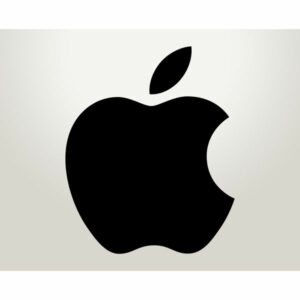
First, Apple has created a global network of consumers who strongly associate its brands with wealth, social status, innovation, and creativity. This is called a belief network effect. And just like in the cases of other network-driven businesses, the value of the network scales exponentially relative to the size of the network, leading to winner-take-most outcomes. But in the case of luxury goods brand networks, this winner-take-most dynamic doesn’t show up in the number of units sold by the company. Rather, it shows up in the dollar value captured by the brand. You can see this effect most clearly by looking at lists of the most expensive items ever sold in a given luxury category. Automobiles are a great example of this. Ferraris account for 59% of the dollar value share of the top 100 most expensive automobiles ever sold, 75% of the dollar value share of the top 10 most expensive cars sold, and a whopping 83% of the dollar value share of the top 5 most expensive cars sold.1 In other words, the more clearly the purchase relates to social status signaling as opposed to driving utility, the more clearly Ferrari dominates the value capture. And this general pattern plays out in most other luxury categories, with Hermes dominating luxury handbag value capture, Patek Phillipe dominating luxury watch value capture, and Nike and its Jordan brand dominating luxury sneaker value capture. In Apple’s case, it’s even more dominant in mobile phones than Ferrari is in automobiles with 95% of the value capture in the top 10 most expensive mobile phones ever sold and 100% of the value capture in the top 5 most expensive mobile phones ever sold.2 Moreover, in Q1 2021, Apple captured 42% of global smartphone revenue even though it only accounted for 16.8% of global units shipped.3
What makes Apple different than many luxury goods companies is that it also benefits from network effects and high switching costs as a result of the software part of its business. Apple’s most powerful network effect from a software perspective is its app store, which connects consumers with application software providers. Because consumers derive exponentially increasing value from app stores with more app choices and application software providers derive exponentially increasing value from app stores with more consumers, the global mobile operating system market has developed such that just two players control over 99% of it, with Android at 73% market share and Apple at 26% market share.4 Furthermore, Apple increases switching costs through its device and media ecosystem where consumers build out content that is hard to transfer to other services and where tight integration of devices such as the iPhone, Apple Watch, iPad, iMac, MacBook, and AirPods increases convenience and utility, especially on shared family accounts.
As a result of its dominance of the luxury mobile phone category as well as the network effects and switching costs of its software, we believe Apple will continue to grow its already premium pricing in the years to come. In fact, if Apple wants to remain a reliable status symbol, it must increase its prices as global wealth increases or else its products will become too easy to obtain, thereby diluting the company’s value proposition. Finally, we think Apple’s future volume growth opportunities are abundant. As billions more people get added to the middle class in the coming decade, we think they will also desire association with the Apple brand, further strengthening the company’s belief and two-sided network effects.
Back to Global Champions Summary Page
1 See https://en.wikipedia.org/wiki/List_of_most_expensive_cars_sold_at_auction.
2 See https://wealthygorilla.com/most-expensive-phones/.
3 See https://www.phonearena.com/news/apple-iphone-account-for-almost-half-global-smartphone-revenue-q1-2021_id131821.
4 See https://www.statista.com/statistics/272698/global-market-share-held-by-mobile-operating-systems-since-2009/.

